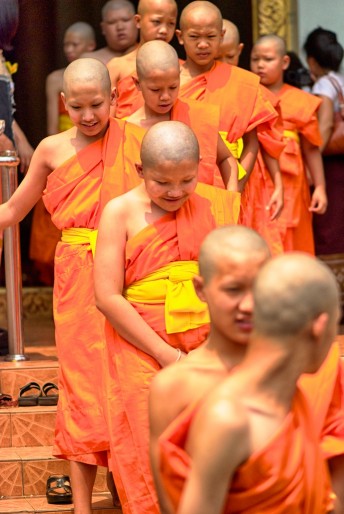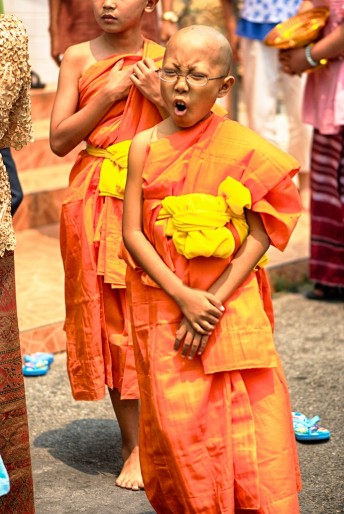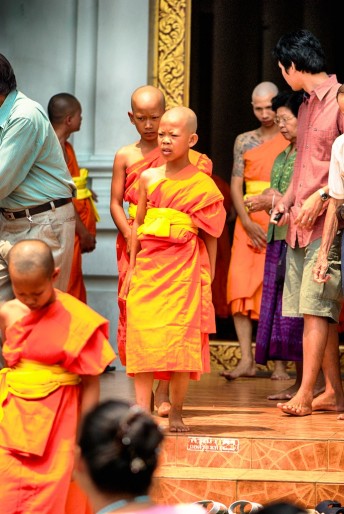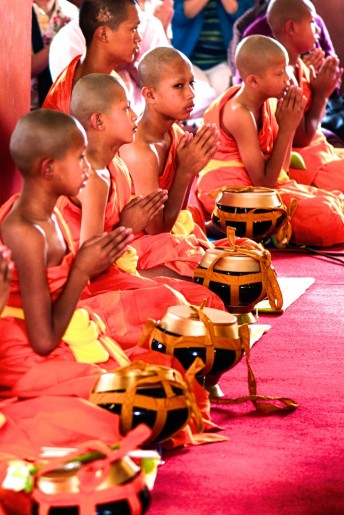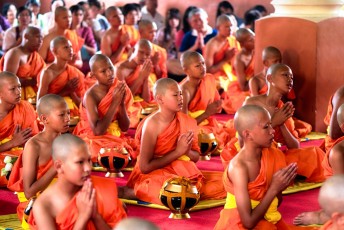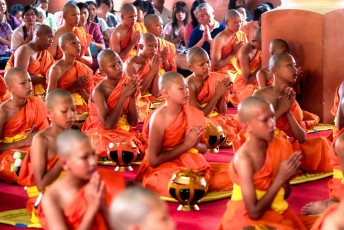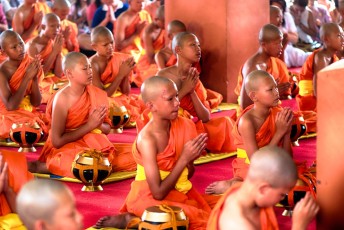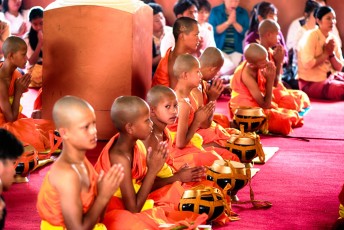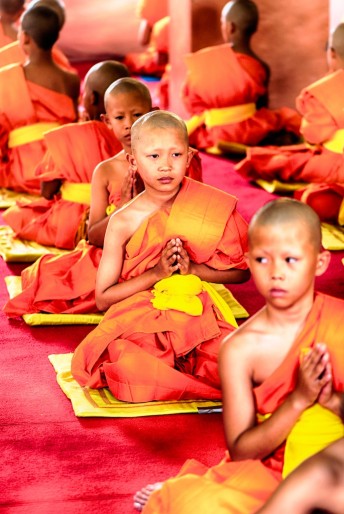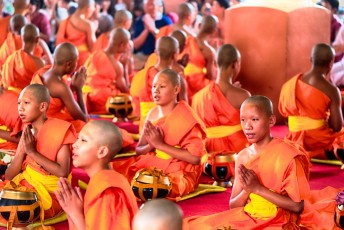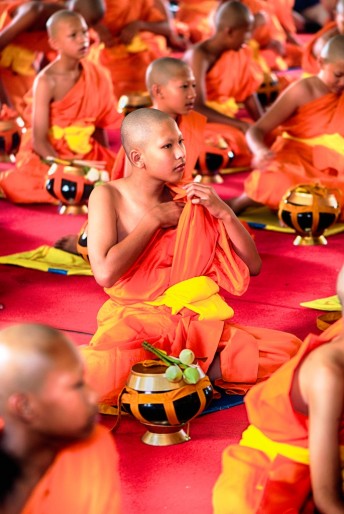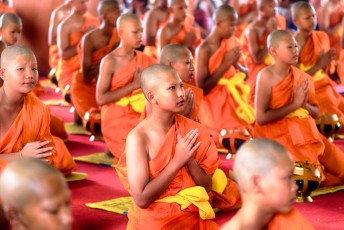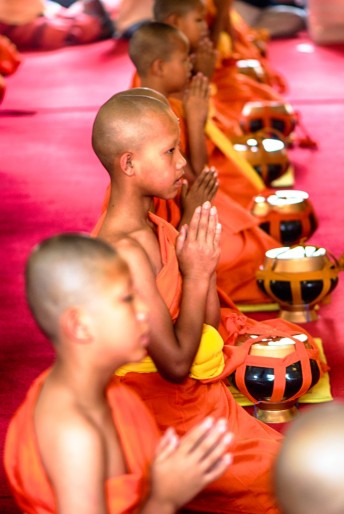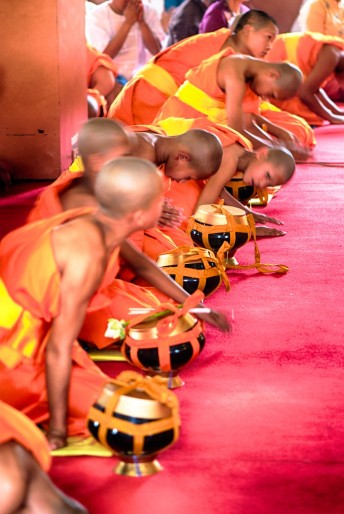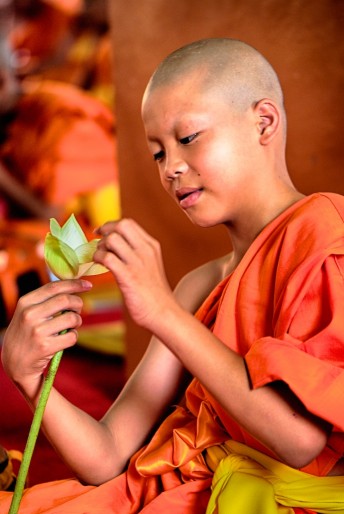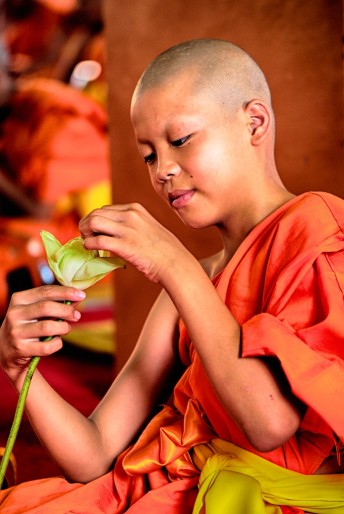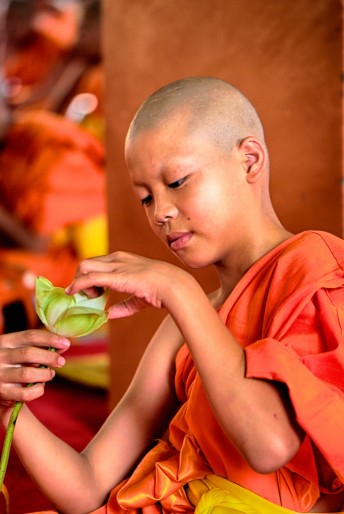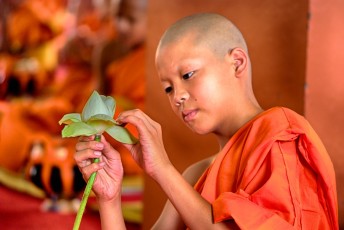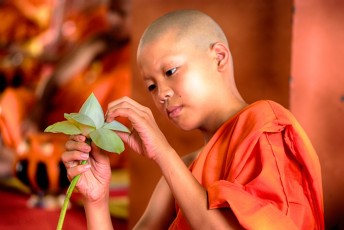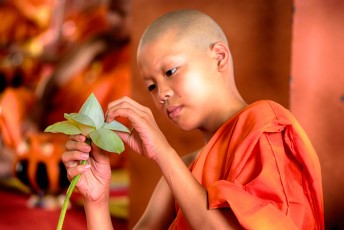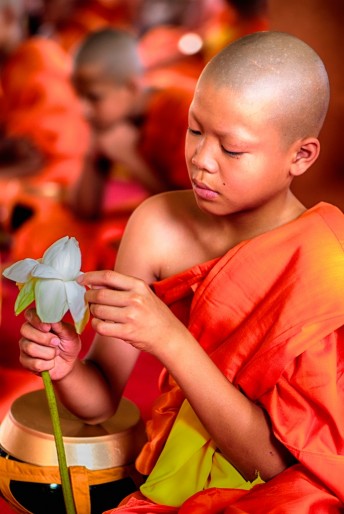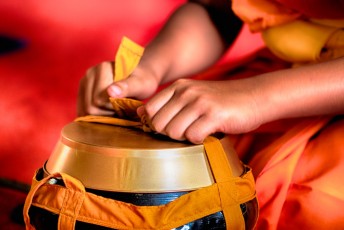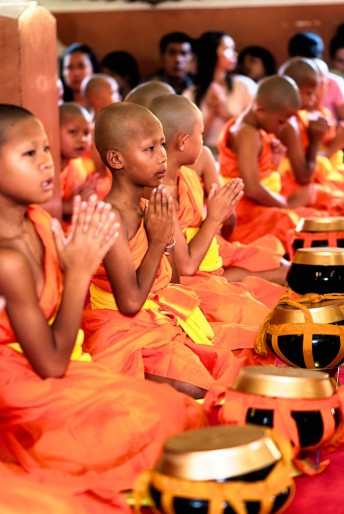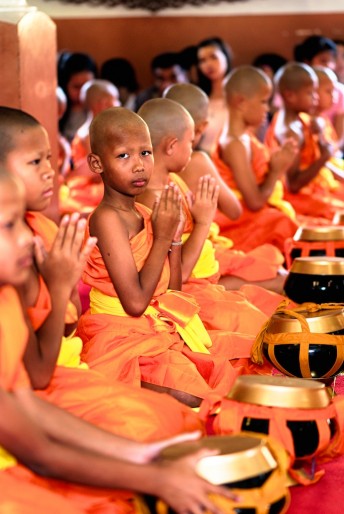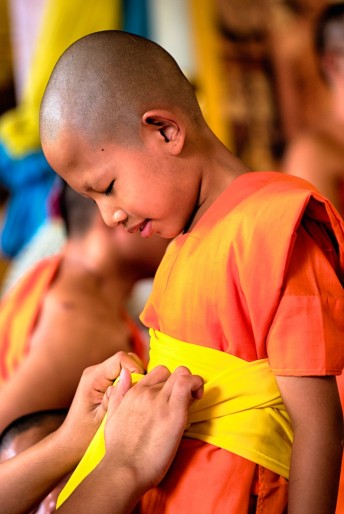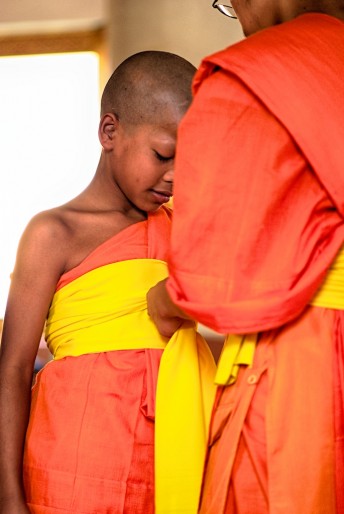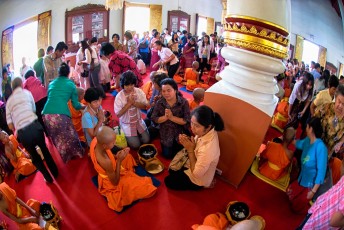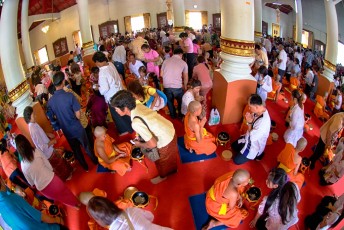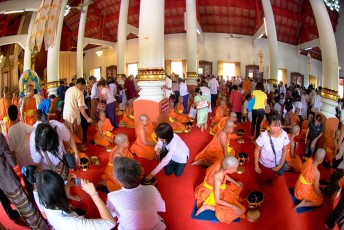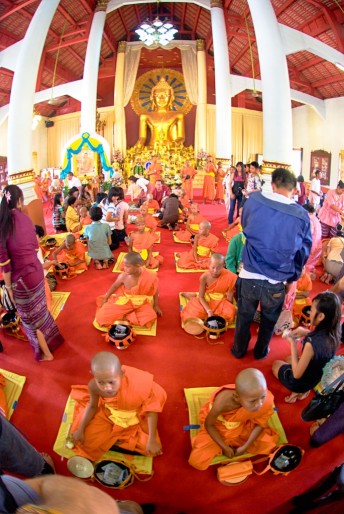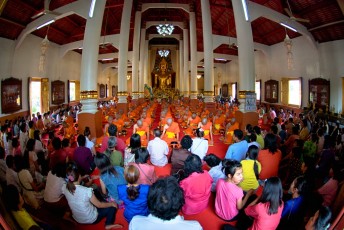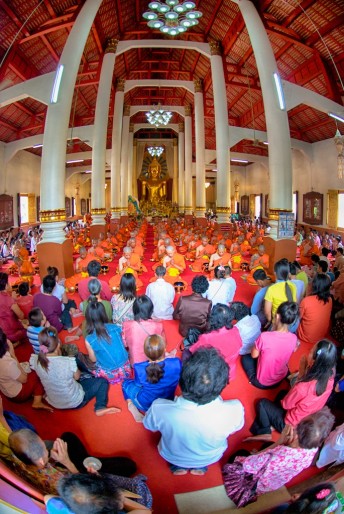Novice Thai Buddhist Monks
Ordination Before Fire
The ceremony ‘buat nah fai’, or ‘ordination before fire’ is where young Thai men become novice monks. A śrāmaṇera (Thai: สามเณร samanen) is a novice monk in a Buddhist context. The literal meaning of śrāmaṇera is “small śramaṇa,” that is, small renunciate, where “small” has the meaning of boy or girl.
In Thailand, novices are known as a “samanen” or just “nen” for short. A monk is called a “bhikkhu”. The main difference between a novice and a monk is that novices only have 10 precepts while monks have 227. If you are a male and are less than twenty years of age, then you cannot become a full-fledged monk. However, don’t make the mistake of thinking that only boys can ordain as novices. Everyone wishing to become a monk first ordains as a novice. And some adults may remain as novices.
The first part of the ordination procedure is called ‘Going Forth in Homelessness’. This is where the candidate requests to become a novice. He is instructed about the Triple Gem (the Buddha, the Teaching, and the Community of Monks) and the purpose and benefits of the ordination. He is then told the five basic objects of meditation which are: hair of the head, hair of the body, nails, teeth and skin.
The hair and eyebrows are shaved as a symbol of purity and a ceremony is conducted before friends and family. The novices learn the ten basic precepts, which range from the logical concepts of not killing and stealing, through physical abstinence from drinking, sleeping in comfort, having sex and accepting large sums of money, to those with slightly more obscure significances, such as not eating after midday, and not wearing watches, shoes and hats.
The Ten Precepts upheld by śrāmaṇeras are:
- Refrain from killing living things.
- Refrain from stealing.
- Refrain from unchastity (sensuality, sexuality, lust).
- Refrain from lying.
- Refrain from taking intoxicants.
- Refrain from taking food at inappropriate times (after noon).
- Refrain from singing, dancing, playing music or attending entertainment programs (performances).
- Refrain from wearing perfume, cosmetics and garland (decorative accessories).
- Refrain from sitting on high chairs and sleeping on luxurious, soft beds.
- Refrain from accepting money.
Days are spent meditating, giving alms and accepting gifts of food from the public, who do this to ‘make merit’.
Taken at Wat Phra Singh, one of Chiang Mai’s Buddhist temples.

